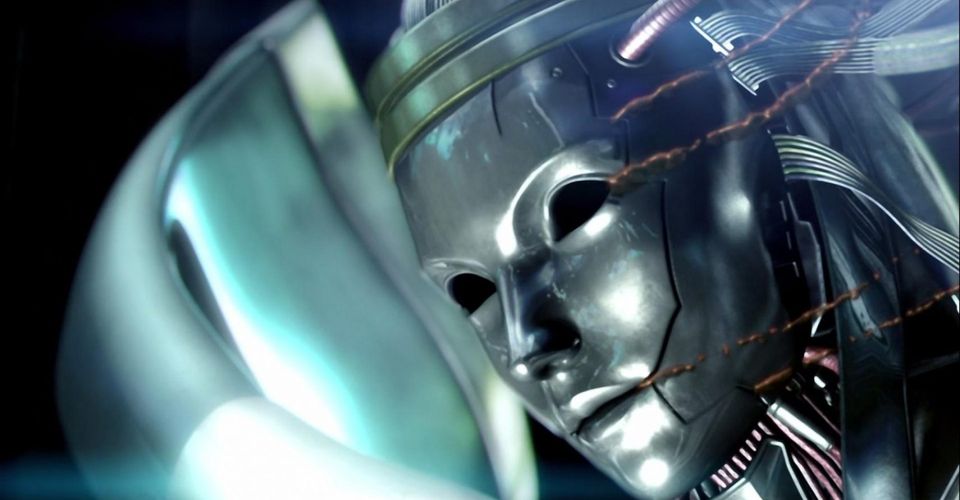Did you miss past episodes of the TWO MORE saga? If so, check out Part 1, in which two men keep a bar open late to discuss Murder and Mint Juleps. Check out Part 2, in which a main character loses it and kills someone in a parking garage (which we have ALL wanted to do at some point, am I right?). Check out Part 3, in which someone goes to Seattle and it ruins their life. And Part 4? Part 4 starts ….. NOW.
**** **** **** ****
Jim Becker stood in the parking lot behind the Blue Fern Restaurant. It was 11:20 P.M. and it was cold. In his hand, he held the pistol his father had given him when he turned eighteen.
“Only for protection,” his father told him. “Never
to hurt. You hear me, son? NEVER.”
“Never,” Jim said, but he didn’t put the gun away.
The man in the garage. The kid. The pool of blood.
The broken bike. He couldn’t get the images out of his head. He hadn’t really
killed anyone yet. Not really. Both of those were just … accidents. … Right?”
I’m a
scientist, the Devil said. I’m
very precise.
Jim still wasn’t sure. What would happen at 11:30?
Would some strange-looking guy step out of the restaurant? Maybe a drug dealer
or a closeted pedophile or something? Would Jim just shoot him and run away? Is
that how it worked?
Could his heart’s deepest desire really be worth all this? And what was the Devil up to, really? Heart’s Deepest Desire? What was this, Jim wondered, a Hallmark Movie?
Could
his heart’s deepest desire really be worth all this? And what was the Devil up
to, really? Heart’s Deepest Desire? What was this, Jim wondered, a Hallmark
Movie?
“Emma
would have known what to do here,” Jim spoke to the wind. “She always had a
preternatural understanding of how things worked and what was going on beneath
the surface of all things.”
He
looked at the gun again.
“I
wish she were here now.”
****
**** **** ****
Jim
returned from his trip to Seattle expecting to find his house either emptied or
burned down. Neither would have surprised him. In fact, aliens could have
abducted the entire city or an as-yet-undiscovered super volcano miles
underground could have exploded and taken out half the country, with his house
as the epicenter, and Jim would have shrugged and said, “Figures.”
Instead,
he returned to find Emma, busy in the kitchen, making dinner.
“Oh,
you’re home!” she said. “Can you hand me the parsley? I think it’s on the
second shelf behind the rosemary.” She laughed: a kind of short chuckle that
always made Jim smile, even now.
“My
mother used to always tell me to keep the parsley front and center. Why, I’ll
never know. It was just one of her rules. Rule #2 is you don’t keep taco
seasoning next to the curry, but that parsley and rosemary thing was her
favorite. Maybe she just hated rosemary. You know anyone who has funny rules
like that, sweetie?”
“No,”
Jim lied, and handed her the parsley.
“Thanks.”
Emma took the parsley from her husband and then, before letting go of his hand,
stood on her tiptoes, and kissed him. Nothing special. Just a peck. Then, she
turned and busied herself with the next task in her recipe.
“How
was your trip?”
“Fine,”
Jim said, stunned.
“Anything
crazy happen that I should be aware of?”
Jim’s
heart skipped a beat.
“Um…
no,” He said. “No, of course not.”
“Remember,
we have dinner with the FAMILY on Saturday.”
“Right.”
“And
your Dad wants to help us fix the door to the upstairs bedroom soon.”
“Sure.”
Jim’s
phone buzzed. It was Samantha.
“I
have a call from work,” Jim said, heading into the hallway.
“Alright,”
Emma said as he left. “Dinner in 10.”
“Hi,”
Jim said.
“I’ve
been thinking about the weekend,” Samantha began. “And I’m not sure you and me
would work out.”
“I
was thinking the same thing,” Jim said, hoping to put the whole thing behind
him.
“I
don’t want to lose my marriage, my family,” she began. “And I know you don’t
want to lose yours. So we’ll have to keep this between us.”
“Right.”
“No
special date nights. No rendezvous at hotels. No stupid love letters. None of
that.”
“…Sure,”
Jim said. “None of that.”
“But
there are always lunch breaks, long afternoon one-on-one meetings, and the
occasional conference,” she said. He voice had an edge to it as she spoke. “I
can’t wait for those.”
“Uh
… Listen,” Jim began.
“Yes?”
the voice on the other end was hesitant.
“Um
… I had a really fun time this weekend,” he spoke in monotone. “I can’t wait to
meet you again.”
“Same
here,” Samantha said, breathing out a sigh that sent tingles down Jim’s spine.
“Honey,”
Emma called from the kitchen. “Dinner!”
“I
have to go,” Jim said.
“See you tomorrow.”
Jim
returned to the kitchen, put his phone on silent, and sat down with his wife.
They shared dinner together, shared old stories together, drank a few bottles
of wine, and sat on the back deck of their small house, watching the fireflies
light up the night sky.
Emma
took Jim by the hand and led him to their bedroom. She kissed him again. They
were intimate for the first time in months, and it was the best sex Jim had
remembered having in a long time, perhaps ever.
When it was over Jim held Emma in his arms until she fell asleep, then rolled on his back and stared at the ceiling for hours, watching as headlights from the cars that passed their house drew shadows across the ceiling.
**** **** **** ****
True to their word, Jim Becker and Samantha Upchurch did not pursue each other outside the bounds of the normal workday. It was a nine to five affair full of lunchtime liaisons, mid-afternoon project planning meetings in remote conference rooms, and the occasional offsite excursion for team-building exercises where the team consisted only of Jim and Samantha, and the exercising in question was most decidedly not HR approved.
Things at home seemed to improve for Jim as well. After the
blow-up before Jim’s Seattle conference, Emma seem to have come back to her
senses. They talked about their days, bought a new kitchen table so they could
eat dinner together, and made it down to the Friendly Stop on occasion for
Thursday night quiz bowl.
Jim explained away any eccentricities in either his actions
or his work schedule with surprising ease.
“Why do you need to go in early tomorrow?” Emma would ask.
“The operations director is in town from London and will be
at the office by 6:00 A.M,” Jim said. “He’s a real stickler for punctuality,
just like most of the Brits who work for us. I want to make a good impression.”
“Why did you spend so much money on lunch when I packed you
a sandwich and your favorite pub chips?”
“That? Oh, the new team makes regular lunch trips, and it’s
expected that managers and leaders like me occasionally cover the tab. I know
it’s stupid, but it’s part of the culture. It’s okay. We can afford it.”
“You seem different,” Emma asked once, making his heart skip
a few beats. “Are you okay?”
“Yes, sweetie. I suppose I have an extra spring in my step
lately. It’s because you’re so lovely. Thank you for noticing. I love you so
much.”
For a while, Jim imagined he could manage his life this way.
Deep down, he knew it couldn’t last and, when it finally all blew up, it would
likely be his fault for lighting the fuse. But, for now, speaking mostly in
little half-truths that, while not exactly lies, Jim rationalized to himself, certainly
did more to keep the peace than anything else in what had passed for their
marriage for the last few years. He had his wife at home and his
friends-with-benefits, who was not looking or anything serious anyway, during
the day.
“The best of both worlds!” Jim told himself at night when he
stared at the shadows on the ceiling, wondering why he was unhappy with all of
it.
And Jim was right. Things went on this way for a while
without even a hint of problems. But, as Emma née Ridenhour’s mother knew all too well, you can’t keep the parsley
away from the rosemary for too long. Eventually, they’ll find each other again
and mess up your whole cupboard.
The mess started for Jim and Samantha on a Tuesday afternoon
in the spring, shortly after they returned from another project planning lunch,
and it came in the form of a middle-aged man named Dave.
Dave was so nervous, his comb-over had flopped backward,
standing straight up over his head.
“Dude, just so you know, HR’s been asking about you and Sam.”
“What do you mean?” Jim asked. His breathing quickened.
“They’ve been asking if you Samantha have been, you know…” Dave rammed his fist back and forth a couple of times and stuck his jaw out at an awkward angle. “That’s not you, is it?”
“No way,” Jim lied. He lied almost reflexively now.
“Good. Just giving you a head’s up. Keep your head down.”
For the next hour, people walked swiftly past his desk. He
could hear them mumbling, shooting furtive glances in his direction as they
passed. The experience reminded Jim of the time he went to Hilton Head with his
parents as a kid. He’d stand in the ocean, feeling the water rush past him as another
wave gathered behind him, then try to run to the beach as fast as he could to
avoid the water cresting over him, pulling him under.
Jim could feel the water gathering. He tried to focus on
work, hoping that he was just imagining things, that Dave was full of it, that maybe
he could leave early and avoid whatever it was his soul told him was soon to
come.
Fifteen minutes before Jim had planned to leave, the water
crested and broke over his head.
Samantha walked through the main office with a box in her
hands. Her eyes were red from tears. She carried a clump of worn tissues in her
hand. An HR director – Jim didn’t know her name. They all looked the same to
him – escorted her to the exit, then walked straight to Jim’s desk.
“Mr. Becker,” The HR director said. “Please follow me.”
Jim sat on a cold, metal chair as his manager, his director,
the HR director who escorted him in, and three additional HR representatives
read the charges against him. Several of his colleagues had complained about
their relationship over the course of three months. They had been unable to
gather any evidence of wrongdoing for quite some time, but when the IT
department insisted in installing surveillance cameras in the empty fourth floor conference rooms in response to
laptops that had coming up missing, they had all the evidence they needed.
“Ms Upchurch,” the HR director began.
“Mrs. Upchurch,” Jim corrected her.
“Ms Upchurch,” the HR lady shot back. “Samantha and her
husband divorced two months ago.”
Jim was shocked. He had no idea.
“Ms Upchurch denied everything until we showed her the tapes. She has taken a leave of absence and will submit her resignation at the end of the fiscal quarter. We suggest you do the same. A formal letter has been sent to your residence, explaining all the details.”
“Wait, what? You sent a letter to my house?”
The HR director straightened her glasses and smiled.
“Yes, Mr Becker. It should arrive tomorrow.”
“But I …”
“But what? Are you afraid what your wife might say?”
Jim was speechless.
“It sounds like you have some important conversations ahead
of you, Mr Becker. Security will escort you out.”
The managers got up to leave. “Good day, Mr. Becker.”
**** **** **** ****
Emma Ridenhour was making pot roast and singing to herself
when Jim got home. It was a folk song Jim had never heard before. He stood in
the living room by himself, listening, and it reminded of the first time he met
his wife. The way she danced by herself, the way she smiled at him, the feel of
her lips against hers on that first kiss, and many others since.
Jim stood in the living room and cried silently. The wave
had crested. The parsley had found the rosemary again. His life with the only
woman he had ever truly loved was over, only Emma didn’t know it yet. Jim stood
in the living room, weeping. There was nothing he could do to fix the mess he had
made or change the only path in front of him.
Jim walked into the kitchen, and told Emma everything.
Three days later, Jim finally cleaned out the crock put full
of pot roast neither of them had eaten. He walked to the living room and sat in
the space where the couch used to be. The bookshelves, the pictures, all their
memories were gone. All that was left was ratty, high-backed chair from his
college days, his clothes, and the crock pot full of moldy pot roast he had
recently thrown away.
That, and the silence, only this silence was somehow worse
because where, in the past, there was hope of renewal. Now, there was no hope.
Jim went down to The Friendly Stop, ordered a few beers, and
started telling everyone how happy he was to finally be single again. Everyone
but Sean believed him. Sean could see his eyes.
“The last thing I need is another woman,” Jim Becker said,
and it was true. He didn’t want another woman. He wanted Emma.
But Emma was gone.
**** **** **** ****
Jim Becker put his gun in his pocket and made his way to the
front entrance of the Blue Fern restaurant. Someone had draped a sign over the
door that read “The Quarantine Cantina. $2 beers for all non-essentials.”
Jim laughed as the wind blew through his jacket and made him
shiver.
“Why couldn’t the Devil have picked somewhere warmer and
more well lit?” Jim asked, but no one responded. “I wish Emma were here. She’d
know what to do.”
The answer to the Devil’s riddle was obvious. Emma was his heart’s
deepest desire. Could it really be true that all he had to do to get her back
was take care of the final person on the Devil’s list? Jim had seen a lot in
the last twenty-four hours, but even this seemed extreme.
The hooded man in the garage. The kid lying next to his
mangled bike. The images flashed through Jim’s mind over and over. Jim Becker
wasn’t sure he could go through with it.
He closed his eyes, and what came to him this time was not
the constant reel of his past mistakes – of which today’s mishaps were only the
most recent examples – but instead, it was Emma. All the pain and death and
suffering and loneliness swept away, replaced by pictures of Emma on their
wedding day, walking toward him with that sly smile on her face; Emma asleep on
the couch with her hand rested against her cheek in a way that always made him
smile; Emma, looking into his eyes and saying she loved him again, that all was
forgiven, that they could rebuild their lives together, forever and always.
Emma.
Jim gave in. He allowed himself to believe the possibilities
the Devil had shown him. Jim realized that yes, he could kill someone – a very
bad someone like the devil said – if it meant he could have his Emma back.
Jim stood next to a lamp post in the rain, watching as the
doors to the Blue Fern Bar opened wide and people streamed out into the night
air.
“Man in red,” Jim said, scanning the crowd. “Man in Red.”
An older couple slowly made their way down the steps to the
sidewalk. They wore green windbreakers and blue jeans. A group of college men screamed
good-natured obscenities at each other, moving sideways like a mob toward the
parking garage a few streets north. One kid wore a maroon University of Alabama hat but, other
than that, there was no one in red.
That’s when Jim saw her. Those eyes. Those lips. That face
he could never forget, not in a million years. It was his heart’s deepest
desire, his love, his Emma coming down the steps.
She wore a beautiful red dress.
“No!” Jim said, realizing now, almost too late, that it was
all a lie. “Oh God, no!” He turned and started to run away, but the Devils’
words came back to haunt him.
This person is on my
list. This person will die, whether you do the job or someone else. I’m a
scientist. I’m very precise.
“I have to warn her,” Jim thought. He took off running,
following Emma down the alleyway next to the bar.
“Emma!” he screamed. “Emma, wait!” Jim ran full throttle
now, not aware that he still had his gun in his hand. He caught up to her,
grabbed her by the shoulder, and she turned.
“Emma!”
A sharp, loud noise echoed off the buildings around them.
The shocked look on Emma’s face made him stop, momentarily stunned.
“Jim? Oh my God, Jim? What are you doing here?”
Jim stumbled back and looked down. There was blood on his
shirt. Emma stood in front of him, holding a gun of her own. She had pulled the
trigger. Jim doubled over in pain, grabbing at his abdomen.
“Jim!” Emma screamed.
His watch started beeping. 11:30. If he didn’t act now, Emma
would soon be dead. He tried to scream, tried to tell her to run, but all that
came out was a groan.
Emma saw the gun in Jim’s hand. “What’s going on? Were you
trying to kill me?” she asked, the pain in her voice almost too much for him to
bear.
“No,” Jim said, barely able to speak. “Never.”
Jim finally understood. This had been the Devil’s plan all
along. It certainly looked like he
was trying to kill her, didn’t it? But looks can be deceiving. Hadn’t the Devil
himself said that? Jim wondered if that man in the garage had really attacked the blond woman, or if there
was more to the story.
Jim fell to the ground.
“Oh my God, Jim!” Emma knelt beside him, and held his head
in her lap. She pulled out her phone, frantically dialing 9-1-1. “Please, God,
somebody help me!”
Heels clicked quickly in the alley behind him. The Devil
himself had come to finish the job, and all Jim could do was watch.
I’m a scientist, The
Devil had said. I’m very precise. The person in red will die at 11:30.
Here Jim was: his formerly white shirt stained a dark, deep red from the blood that pooled around him, seeping into the concrete.
Jim raised his hand, meaning to shoo Emma away, to protect
her from all of this. She grasped it in both her hands and kissed him. Jim’s
blood smearing across her cheeks.
“Hold on,” she said.
The clicking got closer. Old Scratch, The Man in White, The
Lord of the Dead. The Devil stepped over the soon to be deceased Jim Becker,
made a show of brushing a spot of blood off of his white pants, and stopped.
Jim closed his eyes, and the last thing he heard before
passing from this world into whatever waited for him in the next, was this:
“Hello, Emma. That was your first. You’ve got two more.”








